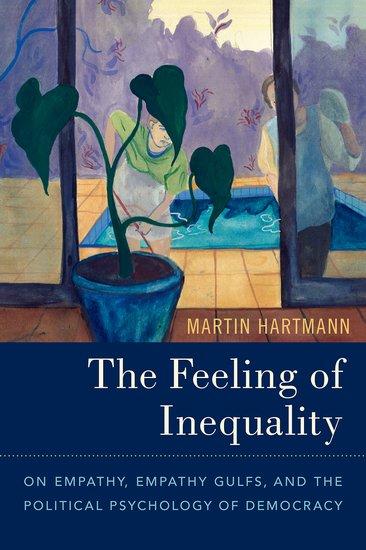
Zustellung: Di, 27.05. - Mo, 02.06.
Versand in 2 Wochen
VersandkostenfreiBestellen & in Filiale abholen:
The Feeling of Inequality shows how inequality reaches far beyond quantifiable differences in income or capital and considers how widespread socio-economic inequalities affect our ability to relate to each other emotionally and intellectually.
Inhaltsverzeichnis
- Introduction: Toward a Relational Democratic Equality
- Part One: Empathy and Empathy Gulfs
- 1. Empathy as Non-Moral Psychological Mechanism
- 2. Against Empathy: Criticizing the Critiques
- 3. The Role of Imagination
- 4. Empathy Gulfs
- Part Two: Agents of Differentiation:
- Hume's Account of Positional Feelings
- 5. Sympathy and Imagination
- 6. The Principle of Comparison and the Peculiar Self
- 7. Does the Comparative Urge Disrupt Sympathy?
- 8. Masters, Servants, and Relational Proximities of Power
- Part Three: "We Despise a Beggar": Smith's Defense of Inequality
- 9. Sympathy and the Impartial Spectator
- 10. Limits of Sympathy in Smith
- 11. Going Along with the Rich and Powerful: Establishing Inequality
- 12. The Problem of Imputation: Sympathetic Prejudices
- Part Four: Distances
- 13. Drawing Systematic Lessons from Hume and Smith for an
- Account of Relational Inequality
- 14. Scenarios of Inequality: Domestic Cleaners, Cows,
- Restaurant Kitchens, and the Denial of Existing Relations
- 15. The Materiality of Moral Distance I: Tocqueville's
- Pre-Revolutionary France
- 16. The Materiality of Moral Distance II: Space, Marriage, Taxes
- and Language
- Part Five: Empathy Gulfs and the Question of Critique
- 17. What's Wrong with Empathy Gulfs? Complementary
- Dependence and the Union of Social Unions
- 18. Absolute versus Relative Inequality: A Problematic Strategy
- in Recent Egalitarianism
- 19. The Denigration of Envy and the Inequality of Emotional Impact
- 20. Critique and Comparison
- Bibliography
- Acknowledgments
- Index
Produktdetails
Erscheinungsdatum
24. März 2023
Sprache
englisch
Seitenanzahl
304
Autor/Autorin
Martin Hartmann
Verlag/Hersteller
Produktart
gebunden
Gewicht
587 g
Größe (L/B/H)
240/165/30 mm
ISBN
9780197500866
Entdecken Sie mehr
Bewertungen
0 Bewertungen
Es wurden noch keine Bewertungen abgegeben. Schreiben Sie die erste Bewertung zu "The Feeling of Inequality" und helfen Sie damit anderen bei der Kaufentscheidung.










